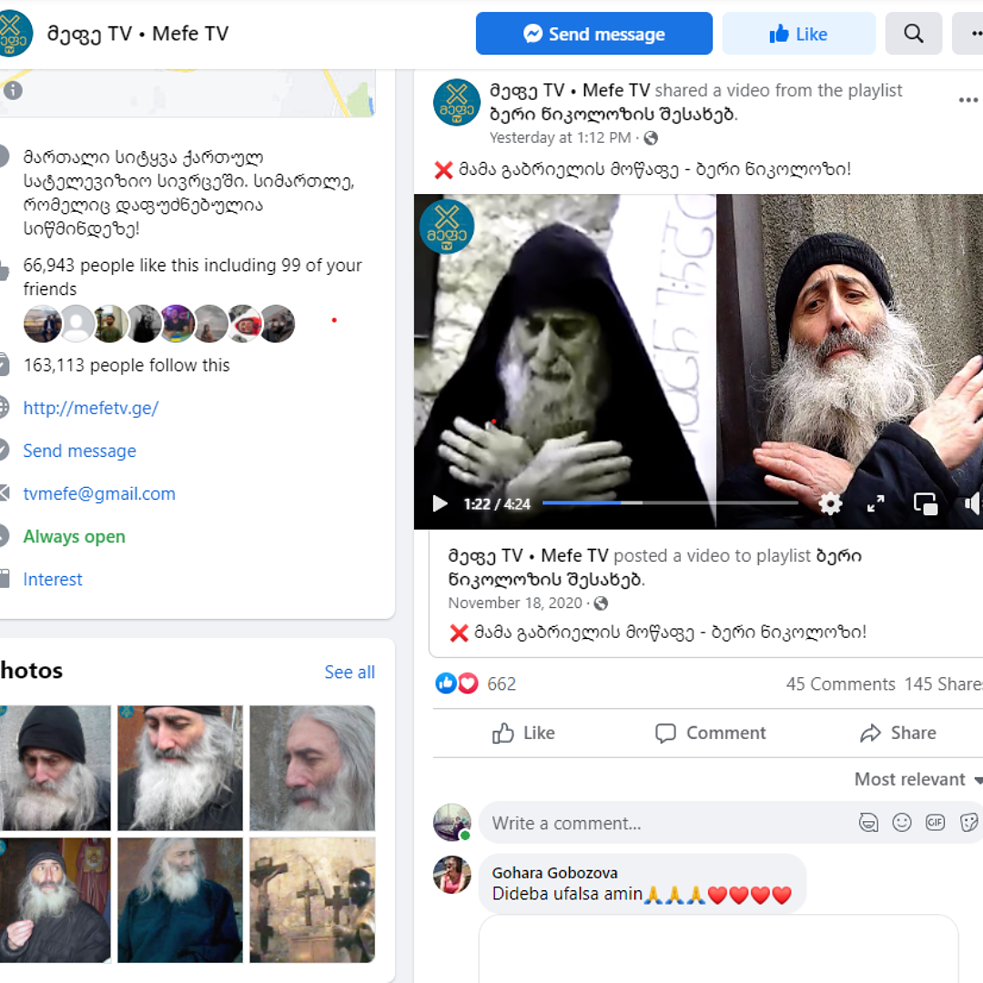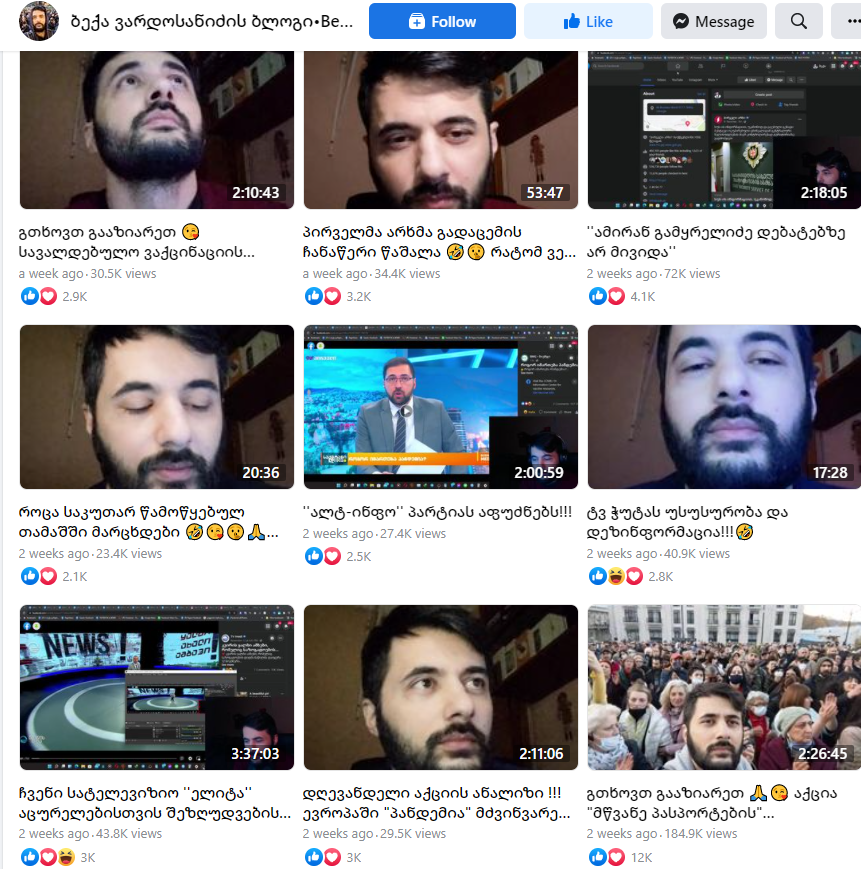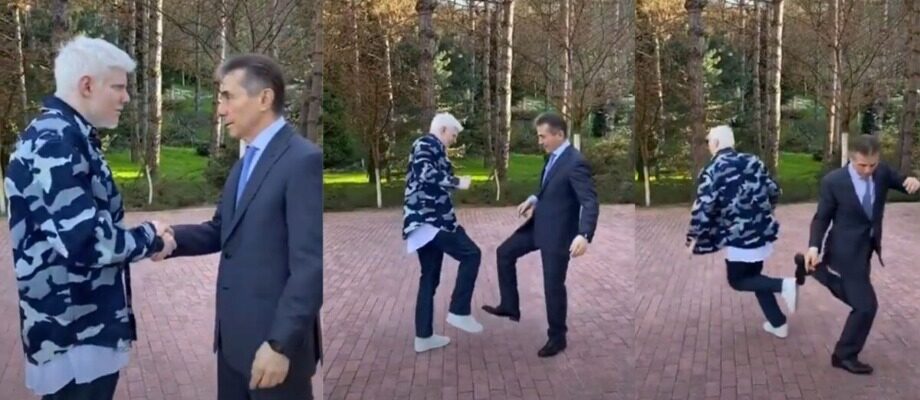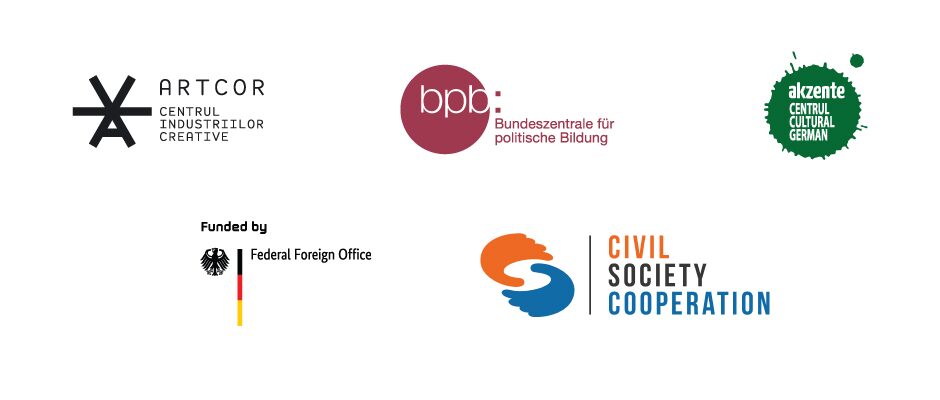Starts of Caucasian Social Media
This article was produced in the framework of the "Unprejudiced" project with the support of the Eastern Partnership Programme and the German Federal Foreign Office in January 2022.
Authors:
Aren Melikyan
Ismayil Fataliyev
Tamta-Natchkebia
Social media has become an integral part of people's lives including those who haven't even subscribed to it. This is especially true and vital for the South Caucasian countries that go through different stages of democratic development, political crises and military conflicts.
People with hordes of followers become opinion makers or influencers by spreading their messages and shaping public perceptions on various issues of public interest. Sometimes these messages are useful, enjoyable, entertainable, sometimes they are unsafe and harmful.
Who and how becomes popular on social media in Armenia, Azerbaijan and Georgia and what contribution they make for public good?
Azerbaijan
Although the most popular social network in Azerbaijan is Facebook, covering 58.3% of the social media market, according to the Global Stats statistics center, its Instagram segment is on the rise. It chases Pinterest, the second most popular and YouTube, that closes the top three. Next comes Twitter, VKontakte, Tumblr and others. As of December 1, 2021, Instagram`s activity increased by 20 % and amounted to 23.9%, which is 13.7 % more than in the same period last year. By the end of 2020, there were 3,7 mln active Instagram users.
22 years old Bayram Nurlu is an Instagram phenomenon from Azerbaijan. Before he signed up for an account in 2014, he was known as a scandalous amateur psychic who rarely finished his TV appearances without arguments. Fastly, he has turned into one of the most popular Instagram users with 415 000 “real followers''. His success came, he says, when people started seeing “an ordinary Bayram from daily life” on Instagram, not the one from TV shows.
“People here feel a need to see positive, sincere, realistic, entertaining, pretty content.
I always tell the truth, I am not cheering up and my audience knows this and they believe in my sincerity”, - he says.
His Instagram posts have account coverage of half a million with 3-4 thousand comments each and dozens of thousands of other engagements and actions. Both elderly and youth are among his followers.
As for his content, he surprises his followers either with a brand new epotage look be it a feminine make-up or masculine beard. Or, he makes video clips with his parents, elder and young relatives that quickly become viral.
Some female women find him “insufficiently appealing in terms of femininity”. Some parents call his content useless and harmful for their children. Some even curse him for “improper behavior”. But Bayram is optimistic as nobody has criticized him tet-a-tet but rather in the comment section that Bayram always keeps open.
”The one who wants to see a black spot on a white board will definitely find it. If you want to be an Instagram phenomenon, you should be open to criticism and even insults,” - he says.
He avoids advertising commercial products in his account as he fears losing his followers' trust in case an advertised item does not meet their expectations.
Bayram`s Instagram account is not his main source of living as he owns and runs the nut production business in his native Balaken, a city some 400 km north-west off Baku. However, it was his Instagram account that helped the business prosper.
He eagerly discusses acute topics of common interest that go unnoticed by media outlets with his followers, be it doctor negligence or inappropriate conduct of officials. Besides, his popularity helps collect donations for surgery or just send boxes of essentials and food to the poor.
Becoming popular on social media in Azerbaijan highly depends on how regular people appreciate a person, how he or she behaves and shows respect to others. This has been the case of Nuran Huseynov, known as Haci Nuran. A 44 years old TV presenter and philanthropist became extremely popular on Instagram after he was successfully cured from cancer and started his own donation foundation for cancer patients. He has more than 530 K followers and is well-known among politicians both domestically and abroad with whom he has shared photos.
As for politicians, they are not popular on social media except for the incumbent president Ilham Aliyev and his wife, first vice-president, Mehriban Aliyeva. The first one has 790 K followers on Twitter while the second - 770 K followers on Instagram. Although they mainly owe popularity to the positions they hold, it is worth mentioning that the president's Twitter account was one of the most visited, and tweets most retweeted and commented on during the 2020 Nagorno Karabakh war as he was confirming the latest developments on the battlefield within 44 days of the war.
Undoubtedly, social media gains its momentum and becomes more popular than conventional TV and radio. As everywhere else, in Azerbaijan readers and viewers wish to immediately obtain information via social media rather than wait for it to appear on TV news editions. Growing internet access of the population adds up to it. According to internetworldstats, as of June 2021, 7.9 mln out of 10.2 mln people in Azerbaijan are internet users. Among other obvious and objective reasons are less ads on social media and the possibility to watch whatever part of the content the viewer wants to.
In terms of efficiency too, the gap between TV and social media is widening and the former loses to the latter. Notably, in Azerbaijan people can watch alternative viewpoints via social media rather than traditional TV outlets due to de-facto self-censorship in the latter. For example, main TV outlets here can barely criticize mid-level officials and upwards while this is not the case for the internet outlets. Simply said, many of Azerbaijani TV channels are far from the criticism that ordinary people want to see. Instead, they try to fill the gap with content related to show business and criminal news which in its turn does not work too.
Media experts in Azerbaijan believe the more internet-provided opportunities appear, the more society would like to see and discuss on social networks, especially visual ones. For example, as YouTube becomes more important in Azerbaijan, as interest in live broadcasting increases and people's desire to self-express grows, so will the focus on internet TV.
Concurrently with the growing internet access for the population, the recently adopted law on media, according to media law experts, now grants the authorities the right to block online content on a whim.
Armenia
Armenia is a country where “cannons win over boobs”, says Samvel Martirosyan, one of top popular influencers on Armenian social media. Unlike in other parts of the world where social media celebrities are mostly pop artists, beauty and entertainment bloggers, the majority of popular people in the Caucasian country are associated with politics.
Martirosyan is among the pioneers of Armenian social media, starting from the early 2000s, when personal blogs were trending on limited creating platforms on the internet.
“At the time of Live Journal those having one thousand followers were called “tisyachnik” [from Russian word “tisyacha” - one thousand] were esxeptionaly cool. I remember when I reached my thousand I felt like a top-tier,” Martirosyan says.
Posts mainly about digital security and the media gradually grow Martirsoyan’s audience through the years, reaching its peak during the recent Armenian-Azerbaijnai war in 2020 over Nagorno-Karabakh. With a population of less than 3 million people, 100,000 followers in Armenian Facebook is a big score. The influencer has around 115 thousand followers there, more than 10 thousand are subscribed to his channel on Youtube.
“The biggest rise in my audience has happened during military actions, that’s the specificity of Armenia. In fact, people having the biggest audiences are somehow connected to the war. It is either the war or the politics,” the influencer notes.
With 1 million followers, the biggest number on Armenian Facebook, the country’s Prime Minister Nikol Pashinyan has the lead, followed by the former spokesperson of Armenian Ministry of Defense, Artsrun Hovhaniisyan. Hovhannisyan was the main official source to get information during the military escalations and has approximately 600 thousand followers.
“Armenia is somehow deformed, in a sense that Artsrun has more followers than girls with big breasts. The reason is we are a country in conflict. In a country with a stable political situation, beauty bloggers, pop singers, and their life are more popular,” Martirosyan jokes.
In a research conducted in 2019 by the Union of Informed Citizens, a Yerevan based NGO, 36,5 percent of respondents said their first source of getting information is the internet, with 35,7 percent for television in the second. Martirosyan believes more people are using social media to get answers to their questions uncovered by traditional media.
“Unfortunately there are not many quality content producers in Armenia. Journalists, experts who could create quality content do not do that. But the audience is interested. Perfect TV is a vivid example, people need analysis and since they can't find it they are going to the horrifying content,” Martirosyan believes.
Perfect TV is one of the channels on Armenian Youtube channels providing lurid and dissinforming content, with over 235 million views overall. Sensationalist headlines of the videos like “Putin’s Armenian friend bought Karabakh from Aliyev, the whole country is shocked”, “American passports for all Armenians, Biden signed his first shocking directive” can have from average 30-40 thousand views to several hundred thousands.
“People crave information and finally there is someone who might be in a deformed way, but finally satisfies it,” Martirosyan said.
A facebook group, called “Army of light,” based on national-militaristic ideology, has around 65 thousand group members. Its initiator, Karen Arayan, who also leads anti-vaccination protests in Yerevan, is followed by around 35 thousand social media users.
Hard to swallow formulations of officials make many people turn to content that explains things in a foul language, salted with slang and swear words, as well as to non fact based sources, with high emotional sentiment.
Among other top not-political profiles is Vahe Petrosyan, a religious composer, who prays and preaches on Facebook live. 160 thousand people follow Petrosyan, praising his posts with “Amen”, and making him the most popular non-political figure on Armenian social media.
Georgia
In Georgia there is a man, called Nariman/Nikoloz, in the comments of whose posts Georgian people write "Amen", Like Armenians do in comment sections of Vahe Petrosyan's posts.
Narima calls himself a king or, sometimes - a god. And there are people who believe in this. According to the internet, Nariman/Nikoloz is the silent monk sent by the god and he can cure, for example, infertility. There is a Facebook Page, named Mefe TV (King TV), with more than 63 000 likes and around 151 000 followers.
After 7 years of working In the field of communications and social media, Mariam Bajelidze, 28, says that the most important thing to be popular on the internet is to be consistent - if content is successive, users can gather thousands of people around their ideas. Influencers follow this rule, but sometimes the actions of some of them can be damageable to society:
Alt Info - the anti-liberal group together with the Georgian ultranationalists is a propagandistic, anti-Western platform. Founders of it are violent men with pro-Russian rhetoric. Alt Info often spreads manipulative and misleading materials on liberal legislation, George Soros, LGBTQ people, vaccines. Spread hate, homophobia and xenophobia.
Through the efforts of Georgian non-governmental organizations, their pages were deleted by Facebook, but Alt Info still can reach its audience. Currently they don’t have a Facebook page, but post their videos on Youtube and share links to people via Telegram Channel.
On November 20, Alt Info founded the Political Party. The Presentation of Alt Info Party was broadcast online By Beka Vardosanidze. He is a 35 years old man, affiliated with anti-liberal groups. The live broadcast on his FB page had thousands of viewers.
Georgia had a population of 3.98 million in January 2021. By that time there were 2.74 million internet users in Georgia. Most of the population - 94.89% uses Facebook. 4.6% watch youtube. 2.42% use Instagram.
We still have no numbers for Tik-Tok.
But, Mariam Bajelidze says that the concept of popularity and virality has been turned upside down by the tick-tock algorithm.
“The algorithm of Tik-tok has a new logic, according to which, a user registered on the same day can collect hundreds of thousands of views. It is also a marketing ploy by Tick-Tock - it needed to bring a heavily-penetrated audience from various social media platforms and it could offer nothing better to content creators other than simple popularity” - says the expert.
Nobody, neither Mariam knows, why Bera Ivanishvili - a son of billionaire Georgian oligarch Bidzina Ivanishvili wants to be a Tik-Tok personality, but he creates lots of content and gains millions of views. He already has 6.7 million followers and 147.2 million Likes. His father, Bidzina Ivanishvili, who is an informal ruler of Georgia and was the head of ruling Georgian Dream party in 2020, publicly appeared only on Bera's tik-tok video during the coronavirus crisis.
The total population of the South Caucasian countries is less than that of, for instance, the Netherlands alone. However, reasons to become popular on social media are diverse. No matter if one`s popularity depends on how regular people appreciate a person like in Azerbaijan, or giving answers to questions uncovered by media like in Armenia or how consistent and successive the content is like in Georgia, people are eager to follow influencers that care for public good.



